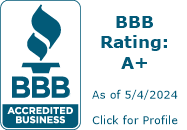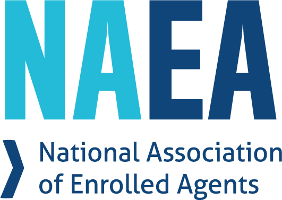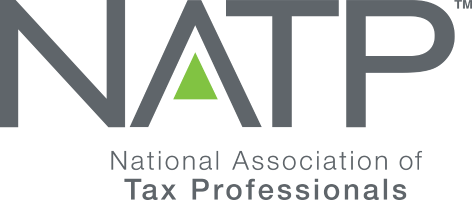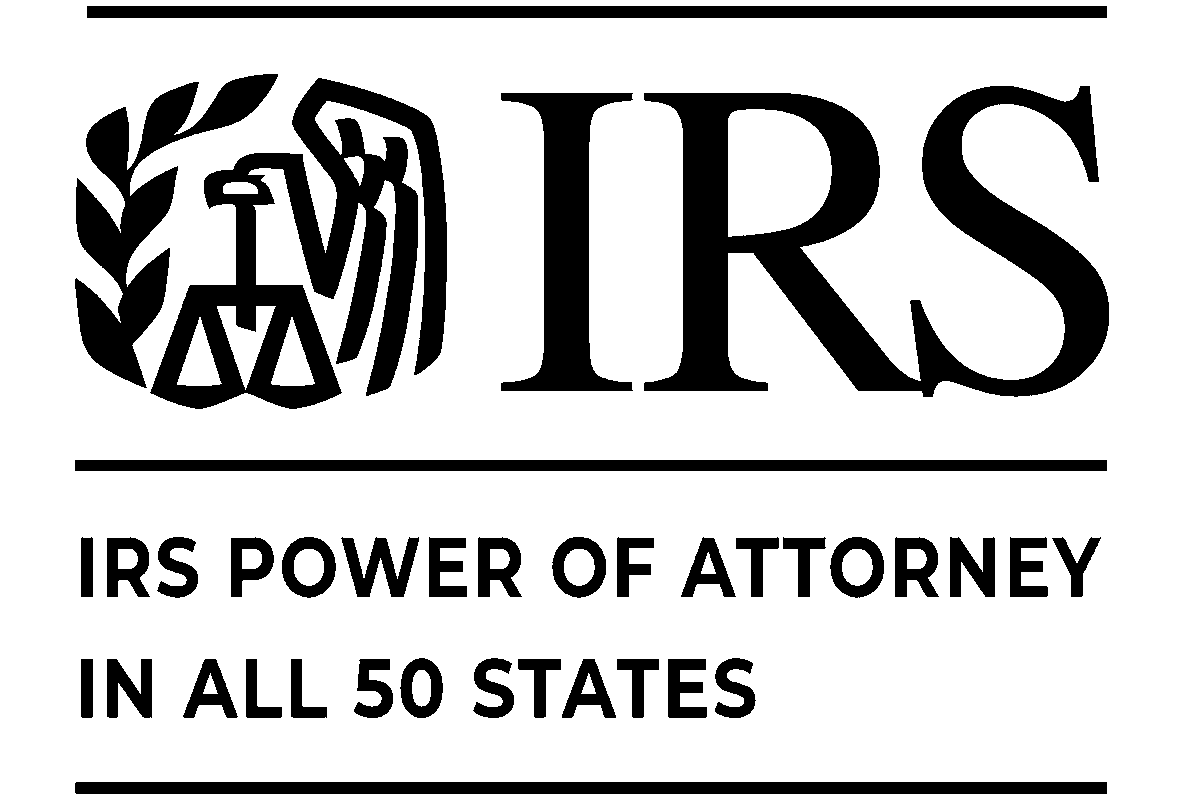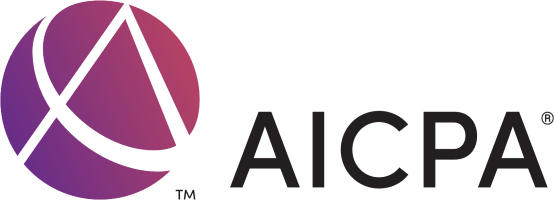Facing tax debt is challenging enough, right? Never mind the added confusion of unknown organizations calling you on behalf of the IRS. Like many folks, you might have found yourself staring at your phone wondering who the CBE Group is, asking yourself why ConServe is calling you or researching Coast Professional debt collection agency.
Many Americans don’t understand the role of private collection agencies and feel uncertain about how to communicate with or verify debt collectors. This article will help you understand these agencies, assert your rights, find expert help and confidently navigate the process.
What Are Private Collection Agencies?
A private collection agency (PCA) is an independent organization that collects overdue debts, also known as delinquent debts, from individuals, businesses and other entities. Some agencies are contracted by the IRS to help with the debt collection workload.
Why Am I Being Contacted by Private Debt Collectors?
You are likely being contacted by private debt collectors because the IRS has handed over your outstanding debt to them for collection. There are currently only three IRS-contracted private debt collectors in the United States. These agencies are authorized to contact taxpayers to help ensure they settle their debts. The three private collection agencies that may contact you are the CBE Group, Coast Professional and ConServe.
Why Is ConServe Calling Me?
If you’re receiving calls from ConServe, the IRS has assigned your overdue tax debt to them for collection. PCAs operate under strict rules from the IRS to ensure taxpayers are treated fairly and that agencies collect responsibly. Understanding regulations can help protect you from inappropriate tactics.
Who Is the CBE Group?
CBE Group is a debt collection agency that contracts with the IRS to help recover overdue taxes. So, why is CBE Group calling you? Because the IRS has authorized them to contact you about your tax debt and discuss your repayment options. It’s important to remember that CBE Group is not the IRS itself and has limitations on its actions.
Why Does Coast Professional Have My Number?
Wondering what Coast Professional debt collection agency is and why they have your details? As part of the IRS Private Debt Collection (PDC) program, Coast Professional is authorized to contact you but must follow strict procedures and respect your taxpayer rights.
How Do Private Collection Agencies Operate?
Agencies partnered with the IRS to work with taxpayers who have overdue tax bills operate in the following way:
- Receive assigned account information
- Make initial contact with the taxpayer
- Negotiate payment arrangements
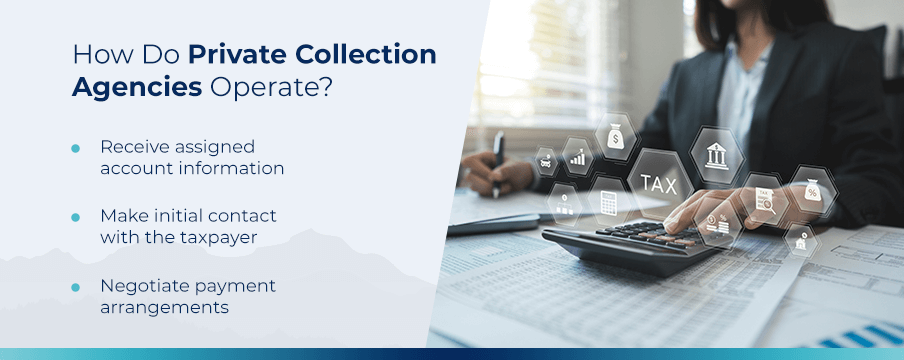
How to Tell if the Private Collection Agency Calling You Is Legit
If someone calls you claiming to be a PCA working with the IRS, it’s important to know how to verify a caller’s legitimacy before believing their story. Someone calling claiming you owe money is not enough to start panicking about where you put those old receipts. So, how can you tell the difference between the people doing their job and those pulling a con? Here is the standard procedure followed by the IRS and associated PCAs:
- You will get a letter, or CP40 notice, from the IRS first. This letter contains important information required for verification later on, so keep it safe.
- The agency handling your account will also send you a letter.
- The PCA will call you and say they are calling on behalf of the IRS.
- The information in the first letter will help you verify the legitimacy of the calling PCA.
If anyone else besides the agency listed in your letter from the IRS calls you about your tax debt, it’s a scam. Hang up. Legitimate agencies will never ask you to pay an individual or a private collection agency directly or via a gift card, pre-paid debit card, cryptocurrency or wire transfer.
What Is a CP40 Notice?
CP40 notice is a letter in which the IRS notifies you that they have assigned your overdue tax account to a private collection agency. This notice always contains the name and contact details of the PCA handling your debt and an authentication number for two-party verification to protect your tax information.
Dealing with these large private collection agencies alone can be challenging. Working to resolve your tax problems with a professional, like an enrolled agent from BC Tax, can help you avoid confusion, mistakes and unpleasant interactions with debt collectors.
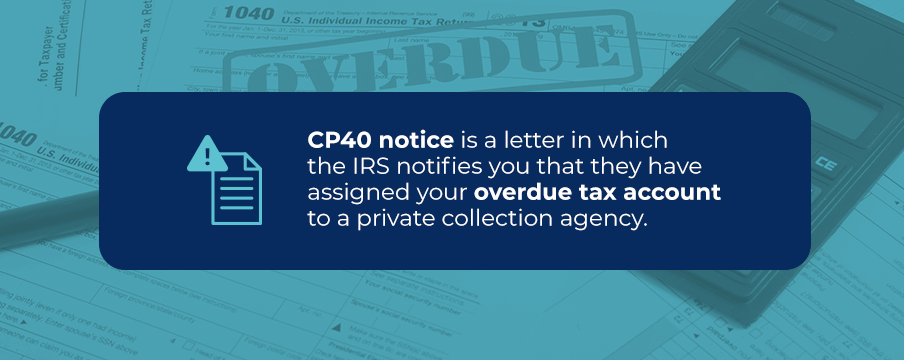
Are There Rules for Debt Collectors?
Understanding what private collection agencies are and aren’t allowed to do is essential to reaching a successful outcome. Thankfully, the Fair Debt Collection Practices Act (FDCPA) protects taxpayers from bad debt collectors.
FDCPA Regulations: What PCAs Can’t Do
Debt collectors are prohibited from engaging in specific actions by limiting laws that regulate:
- Time: Private collection agencies may not contact you before 8 a.m. or after 9 p.m. without your explicit consent.
- Place: IRS-approved debt collectors may not contact you at work if you’ve made it clear you aren’t allowed to receive calls there.
- Frequency: Private collection agencies may not call more than seven times within seven days or call you within a week after talking on the phone with you about a particular debt.
- Communication platforms: PCAs may not contact you via email, text or social media if you’ve asked them to stop.
- Threats and harassment: Under no circumstances may a debt collector verbally abuse you, use offensive language or threaten to harm you.
- False information: PCAs may not give you incorrect information about the amount of money you owe, pretend to be a government official or an attorney, claim that you’ll be arrested if it isn’t true, or threaten legal action against you if it is not their true intent.
- Confidentiality: Debt collectors are forbidden to publicly reveal your debts, including by sending postcards or putting information on envelopes.
- Payment practices: Private collection agencies may not attempt to collect fees, interest or other charges in addition to the amount you owe unless a contract or law states otherwise. It’s also illegal for them to deposit a check before its specified date.
- Attorney representation: Under federal law, a debt collector must go through the attorney handling that particular debt if they know you have one and have their contact information. The agency may contact you if the attorney has been unresponsive.
Keys to Success When Dealing with Private Collection Agencies
Understanding the FDCPA and your rights as a taxpayer is vital to coming out on top when dealing with a private collection agency. Turning to tax professionals for help is the next step toward victory.
Know the Rules and Your Rights
As well as understanding what debt collectors can and can’t do, you can further protect yourself by knowing your rights. Every taxpayer has fundamental rights they should be familiar with, whether dealing with a private collection agency or directly with the IRS. Taxpayers have the right to:
- Be informed
- Receive quality service
- Pay no more than the correct tax
- Challenge the IRS’s position and be heard
- Appeal an IRS decision in an independent forum
- Be aware of finality
- Maintain privacy
- Maintain confidentiality
- Retain representation
- Experience a fair and just tax system
If a PCA breaks the rules or breaches your rights, it’s probably time to get expert help.
Leverage Professional Support
Navigating the complexities of taxes and debt collection can be overwhelming, and it’s easy to make mistakes. A qualified tax professional can offer:
- Knowledgeable expertise
- Strategic financial guidance
- Skilled negotiation assistance
- Potential debt reduction
- Actionable relief suggestions
- Enhanced peace of mind
Discover the Secret Weapon: Enrolled Agents
Enrolled agents are highly qualified tax experts approved by the IRS to represent taxpayers. These agents can help you tackle your taxes before a collector contacts you, represent a taxpayer before an IRS office and support you through debt payment. In short, an enrolled agent is the secret to winning against a private collection agency.
Take Control of Your Situation With the Help of BC Tax
A phone call from a private collection agency can be scary. It’s understandable to feel anxious, but don’t panic. Take a breath and seek IRS tax appeal services if you disagree with the collection action or need support resolving your debt.
BC Tax is a tax resolution firm based in Colorado, serving clients nationwide. We’re dedicated to reducing stress and supporting financial freedom and peace of mind. If you need assistance, explore our tax services to see how we can help.
Ready to learn more? Explore our blog or request a free consultation with a knowledgeable BC Tax staff member.
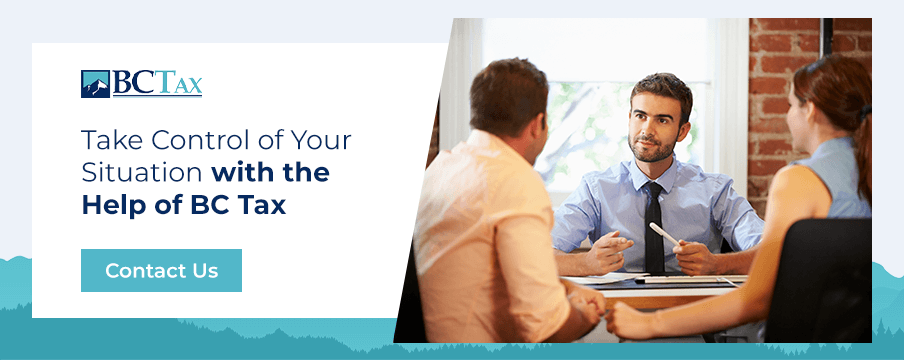

 1-800-548-4639
1-800-548-4639
